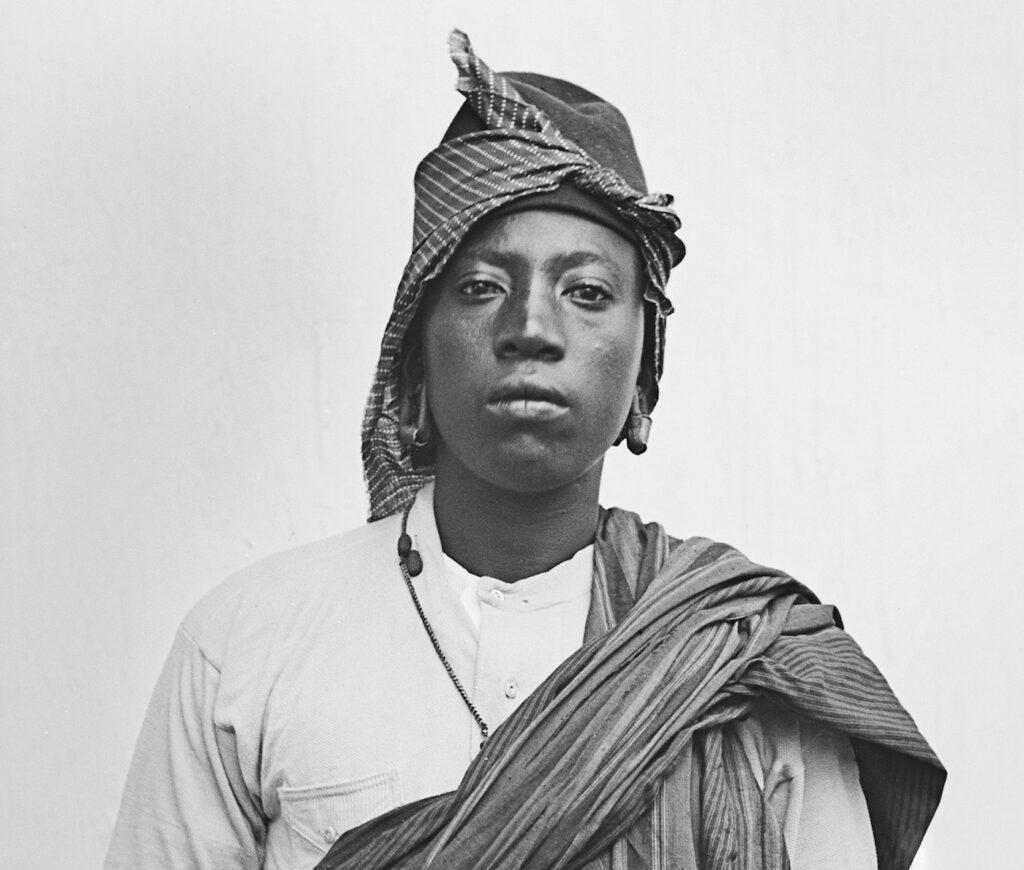Old Courthouse, Moshi, Tanzania
02 Mar 2019 - 31 Dec 2019

Portrait Mangi Meli. Copyright is SLUB/ Deutsche Fotothek.
In Old Moshi, Tanzania, a head is missing. The head is of Chief Meli who fought the German colonial occupation of territory in Kilimanjaro and was executed as a result in 1900. Following his death his head was cut off and said to have been shipped to Berlin, Germany at the request of the Ethnological Museum’s Head of Africa and Oceania department Felix von Luschan. Von Luschan collected thousands of skulls from all over the world for scientific testing based on Rassenlehre – racial ideology. Many of the skulls, including those from Old Moshi, are still stored in Berlin.
The search for the head of Chief Meli has been ongoing for over 50 years, led by Meli’s grandson, Mr Isaria Meli but until now without success.
Yet traces of Chief Meli can still be found in songs, stories and archives. This has formed the basis for an international collaboration of artists, historians, cultural and political activists, and the all-important carriers of oral histories to tell a differing narrative from what the colonial archives purport. A trilingual (Kiswahili, English and German) video sculpture depicts the life story of Meli: as a freedom fighter, his violent death and the possible journey of his head. Re-examined historical photographs and documents complement the exhibition centrepiece.
Mangi Meli Remains first opened in Berlin at the Tieranatomisches Theater (7 November 2018 – 19 January 2019) as one chapter of the exhibition ‘The Dead, as far as [ ] can remember’, before travelling to Dar es Salaam to show at the Dar Centre for Architectural Heritage (5-22 February 2019). The exhibition’s final and permanent location is The Old Courthouse in Old Moshi; the place of Chief Meli’s birth, reign and death. In this, Mangi Meli Remains – Life, Death and Thereafter serves to act as a place of remembrance for the people of Kilimanjaro Region and a placeholder for Chief Meli’s missing head.
Mangi Meli Remains is a Flinn Works (DE) production with Mr Isaria Meli (TZ), Old Moshi Cultural Tourism (TZ), BSS Projects (TZ/UK), ArtEver (TZ) in cooperation with Ethnologisches Museum Berlin (DE) and Tieranatomisches Theater at Humboldt University Berlin (DE).
Supported by Senatsverwaltung für Kultur und Europa, Goethe-Institut Tanzania and Between Bridges.
The exhibition is semi-permanent and opens on 2 March, 2019.
Social Media #MangiMeliRemains